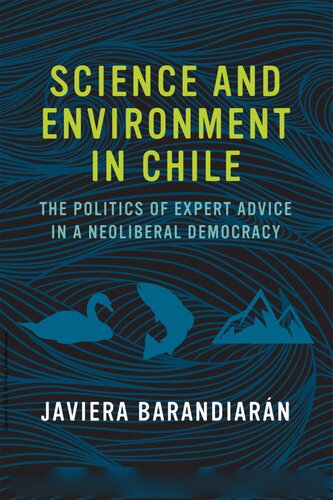

Most ebook files are in PDF format, so you can easily read them using various software such as Foxit Reader or directly on the Google Chrome browser.
Some ebook files are released by publishers in other formats such as .awz, .mobi, .epub, .fb2, etc. You may need to install specific software to read these formats on mobile/PC, such as Calibre.
Please read the tutorial at this link. https://ebooknice.com/page/post?id=faq
We offer FREE conversion to the popular formats you request; however, this may take some time. Therefore, right after payment, please email us, and we will try to provide the service as quickly as possible.
For some exceptional file formats or broken links (if any), please refrain from opening any disputes. Instead, email us first, and we will try to assist within a maximum of 6 hours.
EbookNice Team

Status:
Available0.0
0 reviewsThe politics of scientific advice across four environmental conflicts in Chile, when the state acted as a “neutral broker” rather than protecting the common good.
In Science and Environment in Chile, Javiera Barandiarán examines the consequences for environmental governance when the state lacks the capacity to produce an authoritative body of knowledge. Focusing on the experience of Chile after it transitioned from dictatorship to democracy, she examines a series of environmental conflicts in which the state tried to act as a “neutral broker” rather than the protector of the common good. She argues that this shift in the role of the state―occurring in other countries as well―is driven in part by the political ideology of neoliberalism, which favors market mechanisms and private initiatives over the actions of state agencies. Chile has not invested in environmental science labs, state agencies with in-house capacities, or an ancillary network of trusted scientific advisers―despite the growing complexity of environmental problems and increasing popular demand for more active environmental stewardship. Unlike a high modernist “empire” state with the scientific and technical capacity to undertake large-scale projects, Chile's model has been that of an “umpire” state that purchases scientific advice from markets.
After describing the evolution of Chilean regulatory and scientific institutions during the transition, Barandiarán describes four environmental crises that shook citizens' trust in government: the near-collapse of the farmed salmon industry when an epidemic killed millions of fish; pollution from a paper and pulp mill that killed off or forced out thousands of black-neck swans; a gold mine that threatened three glaciers; and five controversial mega-dams in Patagonia.